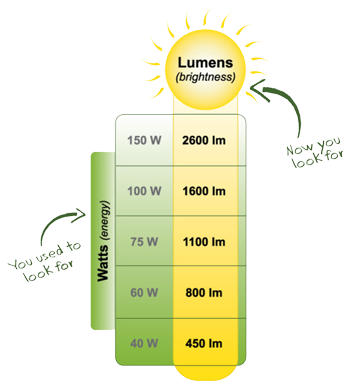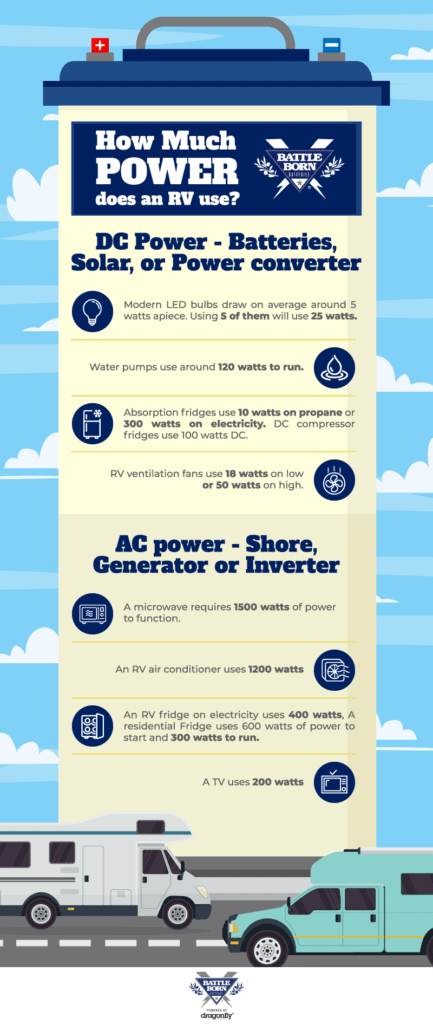Higher wattage is an important factor to consider when purchasing new appliances or electronics. It can make a big difference in how well an appliance functions and how much energy it consumes. In this article, we’ll explore why higher wattage is generally preferable and look at some of the benefits it can have. We’ll also discuss some of the drawbacks of higher wattage and how to determine the best wattage for the appliance you’re considering. So, let’s dive in and see why higher wattage is better.
Why is Higher Wattage Better?
The wattage of a device is the measure of the amount of energy it requires to function. Generally, the higher the wattage, the better the performance of the device, as it can process more power and generate more output. So, why is higher wattage better?
Advantages of Higher Wattage
One of the main advantages of higher wattage is that it increases the efficiency of the device. When a device has a higher wattage, it can process more power in a shorter period of time, which helps it to generate more output. Additionally, higher wattage can also help a device run cooler, as it will be able to dissipate more heat. This allows it to run more efficiently, which can lead to improved performance and longevity.
Another advantage of higher wattage is that it can provide more features and capabilities. Many devices, such as computers and gaming consoles, require higher wattage in order to provide more features and capabilities. For example, a gaming console with a higher wattage will be able to run more powerful games with better graphics and sound. Similarly, a computer with a higher wattage will be able to handle more powerful software and applications.
Disadvantages of Higher Wattage
Though there are many advantages to having a higher wattage, there are also some disadvantages. One of the biggest disadvantages is that higher wattage devices tend to be more expensive. This is because they require more power to operate and so they need more components to generate that power. Additionally, they also tend to be larger and heavier, which can make them difficult to transport.
Another disadvantage of higher wattage is that it can cause more strain on the electrical system. Devices with higher wattage draw more power from the electrical system, which can put a strain on the system and lead to problems such as power outages or surges.
Finding the Right Wattage
When shopping for a device, it is important to find the right wattage for your needs. In general, higher wattage devices are more powerful and efficient, but they can also be more expensive. Therefore, it is important to consider your needs and budget when choosing a device with a higher wattage.
The Benefits of Higher Wattage Devices
Higher wattage devices provide many benefits, such as increased efficiency, better performance, and more features and capabilities. Additionally, they can help to reduce strain on the electrical system and can save money in the long run. Therefore, it is important to consider the wattage when shopping for a device, as it can make a big difference in the performance and longevity of the device.
Choosing the Right Wattage for Your Needs
When choosing a device with a higher wattage, it is important to consider your needs and budget. It is also important to make sure that the device has the features and capabilities that you need. Additionally, it is important to consider the size and weight of the device, as higher wattage devices can be more difficult to transport.
Factors to Consider When Choosing a Higher Wattage Device
When choosing a device with a higher wattage, it is important to consider the following factors:
Power Requirements
It is important to consider the power requirements of the device, as higher wattage devices require more power to operate.
Size and Weight
It is also important to consider the size and weight of the device, as higher wattage devices tend to be larger and heavier.
Features and Capabilities
It is also important to consider the features and capabilities of the device, as higher wattage devices tend to provide more features and capabilities.
Cost
Finally, it is important to consider the cost of the device, as higher wattage devices tend to be more expensive.
Conclusion
Higher wattage devices can provide many benefits, such as increased efficiency, better performance, and more features and capabilities. However, it is important to consider your needs and budget when choosing a device with a higher wattage, as they can be more expensive and difficult to transport. Ultimately, the benefits of higher wattage devices can make them worth the cost in the long run.
Frequently Asked Questions
What is wattage?
Wattage is a measure of electrical power, or the rate at which energy is used. It is the product of voltage multiplied by current. In other words, wattage determines how much power an appliance or device can draw from an electrical outlet.
Why is higher wattage better?
Higher wattage usually indicates a more powerful appliance, which means it can do more work in a shorter amount of time. For example, a high wattage appliance will be able to heat up water quicker than a low wattage one. It can also save you energy and money, as it won’t take as much power to get the job done.
Higher wattage also means more efficient appliances. This is because the more powerful an appliance is, the better it is at converting electrical energy into useful work. This means that higher wattage appliances are more likely to operate at peak efficiency and use less energy in the process.
What are the benefits of higher wattage?
The main benefits of higher wattage are that it can save you time and money. It can also save you energy in the long run, as it’s more efficient. Higher wattage appliances also typically have more features and options, making them more versatile and easier to use.
Another benefit is that it can help to improve safety. Since higher wattage appliances draw more power, they are more likely to be equipped with safety features such as thermal protection and overload protection. This can help to prevent fires and other accidents caused by overloading.
What are the drawbacks of higher wattage?
One of the main drawbacks of higher wattage is the cost. Higher wattage appliances are usually more expensive than lower wattage ones, as they require more power to operate. Additionally, higher wattage appliances are usually bigger and heavier, so they may not be suitable for smaller spaces.
Another potential drawback is that higher wattage appliances can be more difficult to operate. This is because they require more attention and care to ensure that they are operating safely and correctly. Additionally, it may be harder to find replacement parts for higher wattage appliances, as they tend to be less common.
Can higher wattage equipment damage my outlets?
It is possible for higher wattage equipment to damage your outlets, but it is unlikely. Most outlets are designed to handle the wattage of typical appliances, and will usually shut off if the wattage is too high. However, it is important to be aware of your outlets’ limits, as some may not be able to handle higher wattage appliances.
It is also important to remember that higher wattage equipment will draw more power, so it’s important to make sure that your outlets are properly wired and can handle the load. If your outlets are not capable of handling the wattage of your appliances, it is best to have an electrician install new outlets that can.
Does higher wattage mean better sound?
In conclusion, it is clear that higher wattage is better because it provides more power to your appliances. Higher wattage means more energy, which translates to faster heating and cooling times, more efficient motors, and more reliable overall performance. Higher wattage also means higher energy bills, so you need to ensure that the appliance you choose is worth the investment. If you take time to understand the importance of wattage, you will be able to make informed decisions when it comes to buying appliances and ensure that you get the best value for your money.




